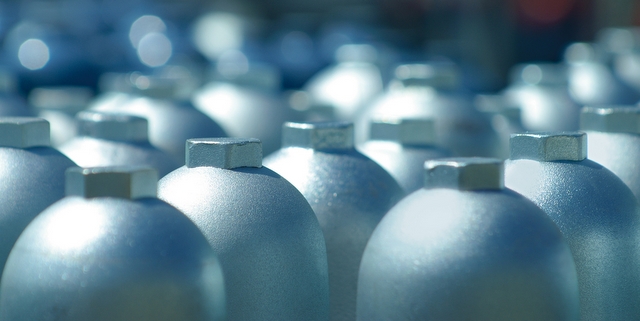
“Brewers should ensure that they purchase beverage-grade gases from suppliers that understand and comply with FSMA [Food Safety Modernization Act] regulations,” said Sal Calandra, food quality and safety manager for Linde LLC, during a workshop at the World Brewing Congress (WBC) 2016 in Denver.
WBC 2016 is an annual meeting organized by brewing coalitions from across the globe so the entire industry may benefit from new industry insights. The Supplier Partnerships workshop outlined how breweries can develop and strengthen relationships with suppliers to drive higher value, product quality and performance.
Calandra manages Linde’s bulk gas quality and food safety management systems. During the workshop, he shared a case study that demonstrated how the implementation of a Hazard Analysis Critical Control Point (HACCP) program by a supplier can identify and mitigate a potential food safety risk in the carbon dioxide (CO2) supply chain.
Beverage quality
“The beverage industry has always been focused on quality standards because CO2 is an ingredient in their product,” said Calandra, who is on the board of directors of the International Society of Beverage Technologists (ISBT), and previously chaired the Food Gases Committee of the Compressed Gas Association (CGA). “Quality extends across the entire supply chain. It is important to many industries, and brewers can benefit from Linde’s expertise.”
Calandra said that some previous best practices pertaining to the supply of beverage-grade gases are now mandatory under new FSMA requirements. “As part of their own food safety programs, brewers should ensure that their beverage gas suppliers, including distributors, are also in compliance.”
Some of these mandatory requirements include:
- Detailed written procedures
- Employee training programs
- Product traceability programs
- Risk assessment programs
- Approved food safety plans
- Food safety audits
“We see brewers of all sizes beginning to adopt guidelines consistent with ISBT. However, some food and beverage gas distributors or craft breweries may not be aware of the new FSMA requirements or the recently updated ISBT ‘Fountain Carbon Dioxide Quality and Food Safety Guideline,’” Calandra said.
Linde operates an extensive industrial gas production and supply network around the world to help ensure reliable and cost-effective delivery of high quality food and beverage gases and gas mixtures. In the United States, Linde produces beverage-grade CO2 and other beverage gases and offers the largest supply network of beverage-approved CO2. Linde supplies this service directly to brewers or through its independent distributor network. Either method can be an effective alternative to ensuring a high-quality supply chain.





RT @CraftBrewingBiz: What craft brewers need to know about beverage gas quality. We ask the #gasperts @LindeGases_NA https://t.co/FEYByN5YQN
RT @CraftBrewingBiz: What craft brewers need to know about beverage gas quality. We ask the #gasperts @LindeGases_NA https://t.co/FEYByN5YQN
RT @CraftBrewingBiz: What craft brewers need to know about beverage gas quality. We ask the #gasperts @LindeGases_NA https://t.co/FEYByN5YQN
What craft brewers need to know about beverage gas quality https://t.co/4UFbNiDs8Q https://t.co/8fulibVzQg
What craft brewers need to know about beverage gas quality https://t.co/9CBsefT8Dj via @craftbrewingbiz
Corey Lord liked this on Facebook.